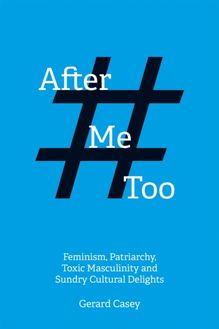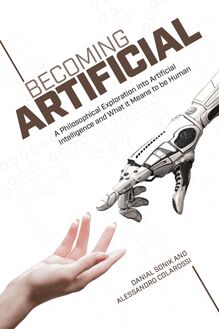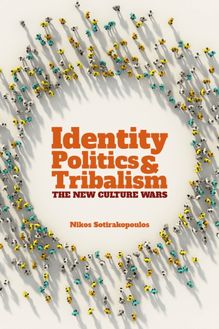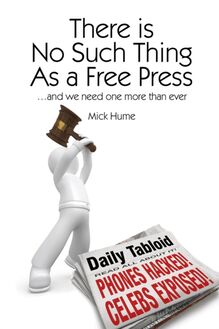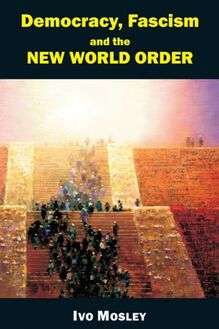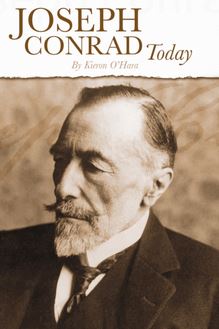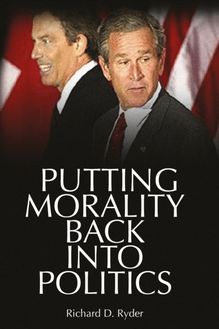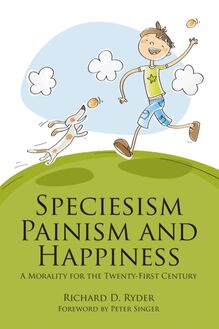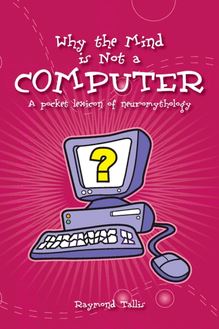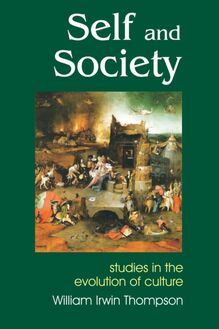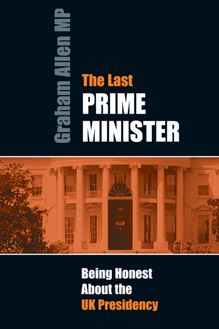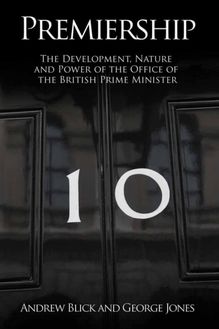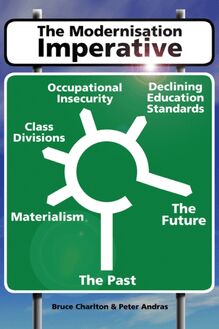-
 Univers
Univers
-
 Ebooks
Ebooks
-
 Livres audio
Livres audio
-
 Presse
Presse
-
 Podcasts
Podcasts
-
 BD
BD
-
 Documents
Documents
-
- Cours
- Révisions
- Ressources pédagogiques
- Sciences de l’éducation
- Manuels scolaires
- Langues
- Travaux de classe
- Annales de BEP
- Etudes supérieures
- Maternelle et primaire
- Fiches de lecture
- Orientation scolaire
- Méthodologie
- Corrigés de devoir
- Annales d’examens et concours
- Annales du bac
- Annales du brevet
- Rapports de stage
La lecture à portée de main
Vous pourrez modifier la taille du texte de cet ouvrage
Découvre YouScribe en t'inscrivant gratuitement
Je m'inscrisDécouvre YouScribe en t'inscrivant gratuitement
Je m'inscrisEn savoir plus
Vous pourrez modifier la taille du texte de cet ouvrage
En savoir plus

Description
Sujets
Informations
| Publié par | Andrews UK |
| Date de parution | 01 décembre 2016 |
| Nombre de lectures | 0 |
| EAN13 | 9781845406974 |
| Langue | English |
Informations légales : prix de location à la page 0,0324€. Cette information est donnée uniquement à titre indicatif conformément à la législation en vigueur.
Extrait
The Great Abdication
Why Britain’s Decline is the Fault of the Middle Class
Alexander Deane
imprint-academic.com
2016 digital version converted and published by
Andrews UK Limited
www.andrewsuk.com
Copyright © Alexander Deane, 2005
The moral rights of the author have been asserted.
No part of any contribution may be reproduced in any form without permission, except for the quotation of brief passages in criticism and discussion.
Imprint Academic
PO Box 200, Exeter EX5 5YX, UK
*
Alexander Deane read English Literature at Trinity College, Cambridge and took a Masters degree in International Relations as a Rotary Scholar at Griffith University, Australia. He is a World Universities Debating Champion and is training to become a Barrister.
*
By the same author published by Imprint Academic
Off With Their Wigs!
Judicial Revolution in Modern Britain
by Charles Banner and Alexander Deane
Acknowledgements
Peter Hitchens - il miglior fabbro
For their thoughts:
Ben Brafman, Jeremy Brier, Laila De Melo, Ryan Goss, Rowena Grant-Frost, Simon Mollan, Simon Quinn, Michael Sanderson, Ewan Smith, Matt Stadland, Amanda Wolthuizen, my family. This acknowledgment of their insight should not be taken to mean that they necessarily agree with anything herein: indeed, the contribution of many was to provide the polar opposite of my own opinion. Many merits here are theirs, and all faults are mine.
For supplying a safe haven and for the happiest of childhoods:
my parents.
For endless support, patience and love:
Dimity Grant-Frost.
For showing me how to be thoughtful:
Professor Colin Mackerras, Senator Russell Trood.
For inspiring me with a vision of a better way to live:
The Rotary Foundation
For wisdom and patience:
my publisher, Anthony Freeman.
*
Elements of Chapter One previously appeared in the 2003 edition of The Monash Debating Review , in ‘Making “them” do what “we” want: in defence of cultural imperialism.’
Elements of Chapter Three previously appeared at www.debatabase.com in ‘Abolishing sex education.’
‘The Middle Class’
It is to be observed, that the middle class which is universally described as both the most wise and the most virtuous part of the community, the middle rank, are wholly included in that part of the community which is not the aristocratical. It is also not disputed, that in Great Britain the middle rank are numerous, and form a large population of the whole body of the people. The opinions of that class of the people who are below middle rank, are formed, and their minds are directed, by that intelligent and virtuous rank who come the most immediately in contact with them, who are in the constant habit of intimate communication with them, to whom they fly for advice and assistance in all their numerous difficulties, upon whom they feel an immediate and daily dependence, in health and in sickness, in infancy and in old age; to whom their children look up as models for their imitation, whose opinions they hear daily repeated, and account it their honour to adopt. There can be no doubt that the middle rank, which gives to science, art, and to legislation itself, their most distinguished ornaments, the chief source of all that has exalted and refined human nature, is that portion of the community of which, if the basis of representation were ever so far extended, the opinion would ultimately decide. Of the people beneath them, a vast majority would be sure to be guided by their advice and example.
James Mill
1816 ‘Government’ supplement to
The Encyclopaedia Britannica (4th Ed.) [1]
1 An Anthology of Pieces from Early Editions of Encyclopaedia Britannica (London, 1963) p. 8.
Introduction: Are You Middle Class?
I am middle class. My parents are both teachers. They invested in shares when the government privatised our state industries. They own the home I grew up in. I attended a suburban state comprehensive school. We holidayed regularly in Europe. I went to University. I have been covered by a private medical plan. I am going to be a barrister. I think of myself as being middle class.
That satisfies me that I am middle class. But who are the middle classes? In his paean The Decline and Fall of the Middle Class and how it can Fight Back , [1] Patrick Hutber states that this question has never received a satisfactory answer; he contends that ‘the mere lack of a definition has, in a strange way, damaged the middle classes in the past. It is much easier to portray them as a snobbish, selfish minority if one carefully avoids the necessity of asking who they are.’ [2]
Why not simply ask people? Why not ask, ‘are you middle class?’ In 1976, Hutber’s concern with such surveys was that social aspiration meant that results were distorted. He thought that there were fewer people in the country who were actually middle class than the number who viewed themselves as such. [3] My concern in 2005 is that there are more. An ‘inverse snobbery’ is at play in Britain, whereby people that would by most objective standards be considered middle class think of themselves as working class. ‘In the last major survey of the issue, two-thirds of all Britons announced that they consider themselves to be working class; 55 per cent of social groups ABC1 think that they are working class.’ [4] In both Hutber’s time and mine, asking individuals to volunteer a position on their status is - whilst interesting for other reasons - not conducive to determining it.
Having discussed various potential standards as measuring tools of class - education, manner of speech, income, occupation; and having dismissed each one, Hutber goes on to settle for motivation as his key distinguishing quality - using the word to describe a set of ‘virtues, aspirations and attitudes’. This presents difficulties, as it is my contention that that it is this very motivation that has been given up by the middle classes. I believe that these qualities have been largely (and sometimes consciously) abandoned, but that they are in some ways still visible. He believes that being middle class is ultimately ‘a state of mind’ [5] - but I believe that the state of mind he envisages is a state of mind now consciously shed, disavowed by many in society who would traditionally have been held to be middle class.
One of Hutber’s main theses is that the individuals within the middle class distinguish themselves from the class below them by their general willingness to rely on their own endeavours - rather than those of the state - to support them and determine their life’s path: proof of his supposition, he suggests, is manifested in the traditional middle class tendency to save for the future, foregoing immediate pleasure for future security and greater pleasure. I believe that this is no longer the case, and that increasingly our middle class looks to the state for guidance in living in a way once seen only amongst our lower classes, which were at least in part compelled so to do by their financial state.
This confusion reflects Judith Brett’s conclusion: that discussion of ‘the middle class’ is difficult because of ‘the failure to resolve whether the term middle class is ... part of a schema of social classification Marxist or otherwise, or whether it is a term of self- description . Of course it is and can be both, but it is important in using it to know which is which.’ [6] Brett was interested in the latter: in ‘the middle class’ as a term ‘people use to describe themselves:’ more particularly , as a ‘projected moral community whose members are identified by their possession of particular moral qualities’. [7] I am interested in the way in which these two templates of the middle class once neatly fitted on top of one another in Britain, but now do not.
I will look at the middle class through the former definition: I wish to discuss a category of individuals whose boundaries are determined by general, rule of thumb criteria such as a particular level of income, non-manual occupation and home ownership - the ‘I know them when I see them’ middle class: broadly speaking, these were once individuals that in effect were also in the Brett moral definition of middle class, being people upon whom one could traditionally depend to defend, in their behaviour and in their attitudes , established values and moral standards, but now cannot.
Brett, like Hutber, believes that the middle class ‘is not a class defined by its members’ economic role, but a class of individuals whose membership of the middle class is the result of their individual attributes and moral qualities’. [8] I wish this were the case, but, in the United Kingdom at least, I do not believe it is, as individuals opt out of the grouping both consciously and by behaviour: given this perspective, discussing the middle class in any way other than as a group identified objectively from ‘above’, on an abstract, objective basis, would be meaningless.
1 Patrick Hutber, The Decline and Fall of The Middle Class, and How it Can Fight Back London, 1976.
2 Ibid p. 16. I acknowledge that there is no definitive homogenous group that is ‘middle class’ and that there is great diversity amongst those that are broadly (and recognisably) ‘middle class.’ The pedantic phrase ‘middle classes’ could be used but, following Hutber’s example, I shall prefer the simpler ‘middle class’.
3 Ibid p. 21.
4 John Lanchester ‘The rise of the angry young chav’ p. 23 The Daily Telegraph 30th October 2004.
5 Hutber p. 27.
6 Judith Brett Australian Liberals and the Moral Middle Class: from Alfred Deakin to John
-
 Univers
Univers
-
 Ebooks
Ebooks
-
 Livres audio
Livres audio
-
 Presse
Presse
-
 Podcasts
Podcasts
-
 BD
BD
-
 Documents
Documents
-
Jeunesse
-
Littérature
-
Ressources professionnelles
-
Santé et bien-être
-
Savoirs
-
Education
-
Loisirs et hobbies
-
Art, musique et cinéma
-
Actualité et débat de société
-
Jeunesse
-
Littérature
-
Ressources professionnelles
-
Santé et bien-être
-
Savoirs
-
Education
-
Loisirs et hobbies
-
Art, musique et cinéma
-
Actualité et débat de société
-
Actualités
-
Lifestyle
-
Presse jeunesse
-
Presse professionnelle
-
Pratique
-
Presse sportive
-
Presse internationale
-
Culture & Médias
-
Action et Aventures
-
Science-fiction et Fantasy
-
Société
-
Jeunesse
-
Littérature
-
Ressources professionnelles
-
Santé et bien-être
-
Savoirs
-
Education
-
Loisirs et hobbies
-
Art, musique et cinéma
-
Actualité et débat de société
- Cours
- Révisions
- Ressources pédagogiques
- Sciences de l’éducation
- Manuels scolaires
- Langues
- Travaux de classe
- Annales de BEP
- Etudes supérieures
- Maternelle et primaire
- Fiches de lecture
- Orientation scolaire
- Méthodologie
- Corrigés de devoir
- Annales d’examens et concours
- Annales du bac
- Annales du brevet
- Rapports de stage
